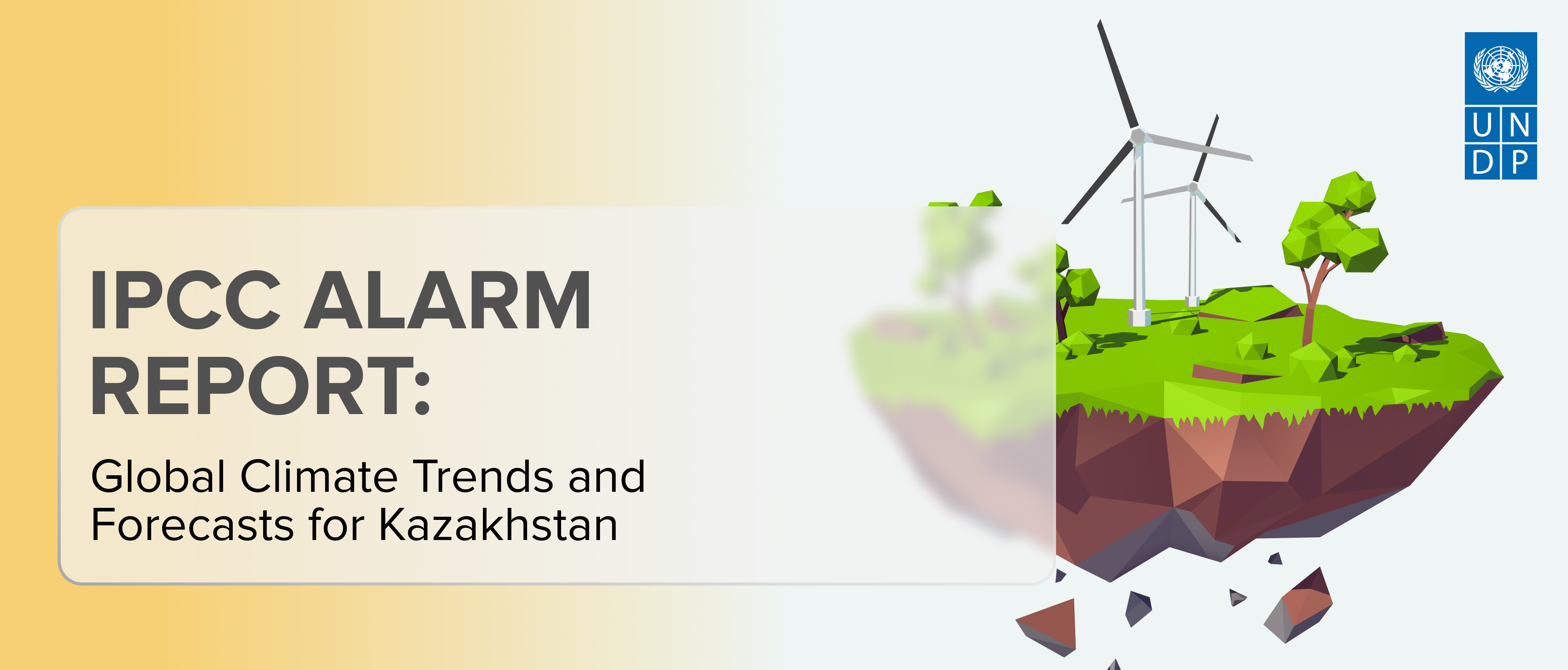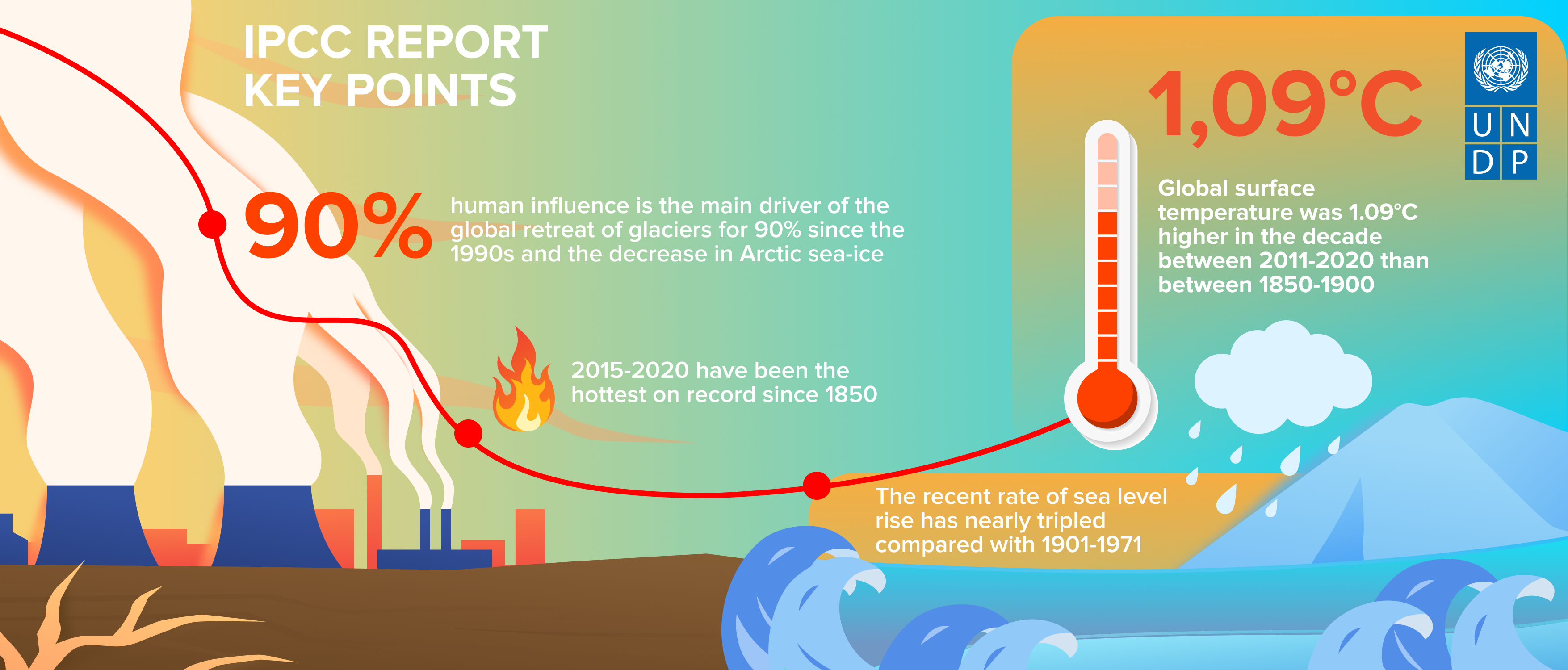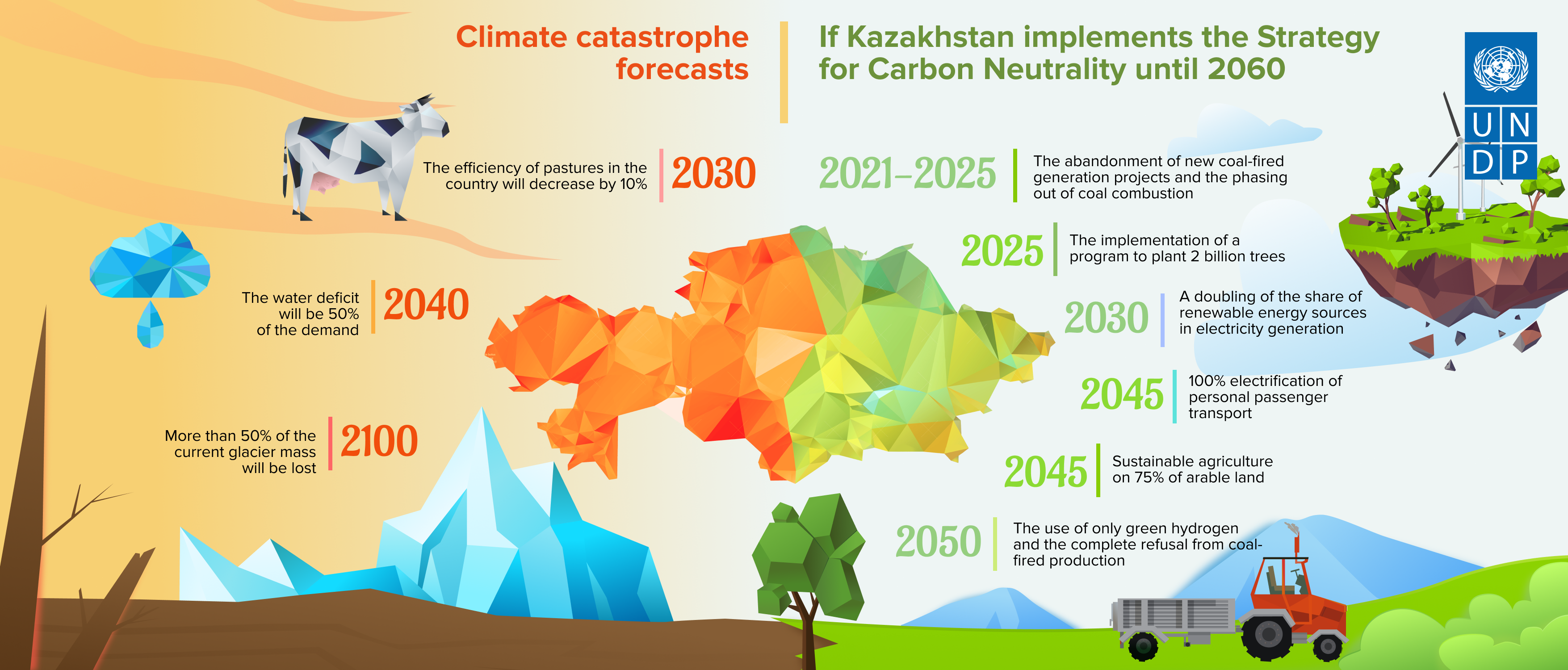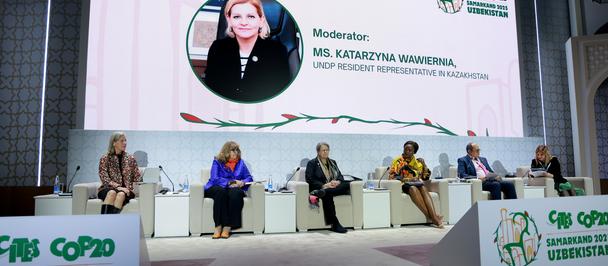UN Secretary-General António Guterres says a report published by the Intergovernmental Panel on Climate Change (IPCC) is a “code red for humanity.” This report has to sound like a death knell for coal and fossil fuels before they destroy our planet, he said.
IPCC ALARM REPORT: Global Climate Trends and Forecasts for Kazakhstan
October 6, 2021
Assessment and projections
The Working Group I report is the first installment of the IPCC’s Sixth Assessment Report (AR6), which will be completed in 2022. “This report reflects extraordinary efforts under exceptional circumstances,” said Hoesung Lee, Chair of the IPCC, at the online meeting with IPCC experts. “The innovations in this report, and advances in climate science that it reflects, provide an invaluable input into climate negotiations and decision-making.”
The report projects that in the coming decades climate changes will increase in all regions. For 1.5°C of global warming, there will be increasing heat waves, longer warm seasons and shorter cold seasons. At 2°C of global warming, heat extremes would more often reach critical tolerance thresholds for agriculture and health. It is “virtually certain” that hot extremes (including heatwaves) have become more frequent and more intense across most land regions since the 1950s, while cold extremes (including cold waves) have become less frequent and less severe, the report stresses.
In strong, confident tones, the IPCC's document says "it is unequivocal that human influence has warmed the atmosphere, oceans and land": human influence is "very likely" (90%) the main driver of the global retreat of glaciers since the 1990s and the decrease in Arctic sea-ice.
Also, experts predict an increase in the number of fires in many regions, frequent floods due to the expected rise in ocean levels. According to the authors of the report, the flood of the century can turn into an annual disaster.
Also, for the first time, the Sixth Assessment Report provides a more detailed regional assessment of climate change, which includes important and relevant information that can help inform risk assessment, adaptation and other decision-making processes. The report also helps explain the implications for societies and ecosystems of physical changes in climate elements such as heat, cold, rain, drought, snow, wind, coastal floods and more. This information is available in the Interactive Atlas.
Climate change in Kazakhstan - what to expect?
According to calculations by the ensemble prediction systems of the World Meteorological Organization, climate change in Kazakhstan in the 21st century will intensify. At the same time, climate change will vary depending on seasons and areas. The average annual temperature will increase by 1‑2 °С by 2030 and by 2‑3 °С by 2050. By 2050, the precipitation levels will grow by no more than 10%, mainly in the winter season; in the southwestern regions there will be less precipitation than in the rest of Kazakhstan. Such changes in temperature and precipitation will inevitably lead to an imbalance of natural systems, a reduction in water resources, and, as a consequence, economic losses in agriculture and other sectors of the economy.
According to national and international experts, climatic disasters such as drought and river shallowing will become commonplace in Kazakhstan. According to forecasts, by 2030, the efficiency of pastures in the country will decrease by 10%, by 2040, the water deficit will be 50% of the demand, and more than 50% of the current glacier mass will be lost by 2100.
In this regard, it is especially important to introduce climate change adaptation at all levels. In addition to adapting to climate change, tough measures must be taken to reduce greenhouse gas emissions.
In this context, an important step in the fight against climate change was the ambitious goal of achieving carbon neutrality by 2060, voiced by the President of Kazakhstan Kassym-Jomart Tokayev in December 2020 during the Climate Ambitions Summit: “In this challenging context, on behalf of all Kazakh citizens, I wish today to reaffirm our strong commitment to fighting climate change and our intent as a nation and government to take increasingly bold targeted action under the Paris agreement. In that spirit, we pledge to reach carbon neutrality by 2060. To reach the goal, Kazakhstan will develop and adopt an ambitious long-term development strategy to lower emissions and decarbonize our economy”
Currently, Kazakhstan is working on the Strategy for Carbon Neutrality until 2060. Key measures include the abandonment of new coal-fired generation projects and the phasing out of coal combustion (2021-2025), the implementation of a program to plant 2 billion trees (2025), a doubling of the share of renewable energy sources in electricity generation (2030), 100% sorting of municipal solid waste (2040), sustainable agriculture on 75% of arable land (2045), 100% electrification of personal passenger transport (2045), the use of only green hydrogen and the complete refusal from coal-fired production (2050), etc.
The United Nations Development Program (UNDP) in Kazakhstan actively supports key “green” initiatives in the country, including for the development and adoption of a new Environmental Code, preparation of Zhasyl Kazakhstan national project, updating the Strategy on the transition to a green economy, and support in the implementation of international climate commitments under the Paris Agreement and climate reporting. In the latter part, UNDP is helping to achieve Nationally Determined Contributions (NDCs) and develop an Adaptation Roadmap and is helping to raise awareness of climate change issues.
According to experts, if by 2030 it is possible to halve global emissions and reach zero emissions by the middle of the century, then the rise in temperature on the planet can be stopped.
We should also recall that the conclusions set out in the IPCC report will be used during the main climate event of a global scale - the Conference of the Parties, which will be held from October 31 to November 12, 2021, in Glasgow, Great Britain. The leaders of 196 countries, including Kazakhstan, will meet to coordinate their actions in the fight against climate change for the sake of people and the planet.
More information on the Sixth Assessment Report can be found here.
For reference:
The Intergovernmental Panel on Climate Change (IPCC) is the United Nations body for assessing the science related to climate change. Created in 1988 by the World Meteorological Organization (WMO) and the United Nations Environment Programme (UNEP), the objective of the IPCC is to provide policymakers with regular scientific assessments on climate change, its implications, and potential future risks, as well as to put forward adaptation and mitigation options. In the same year, the UN General Assembly endorsed the action by WMO and UNEP in jointly establishing the IPCC. The IPCC currently has 195 members.
Thousands of people from all over the world contribute to the work of the IPCC. For the assessment reports, IPCC scientists volunteer their time to assess the thousands of scientific papers published each year to provide a comprehensive summary of what is known about the drivers of climate change, its impacts and future risks, and how adaptation and mitigation can reduce those risks.

 Locations
Locations







